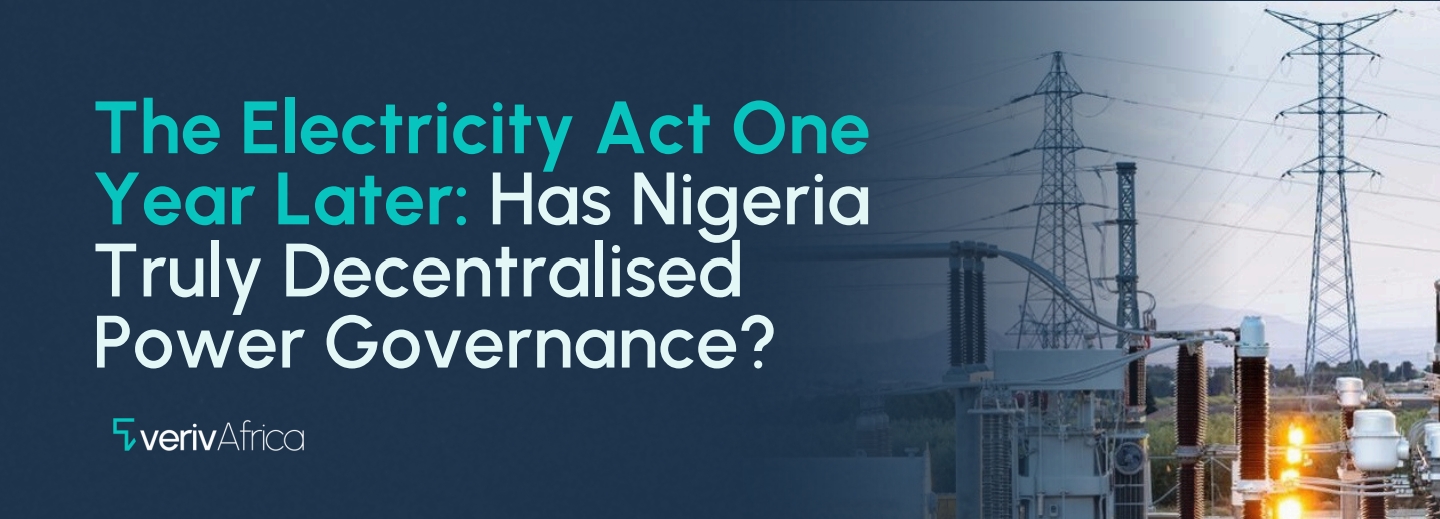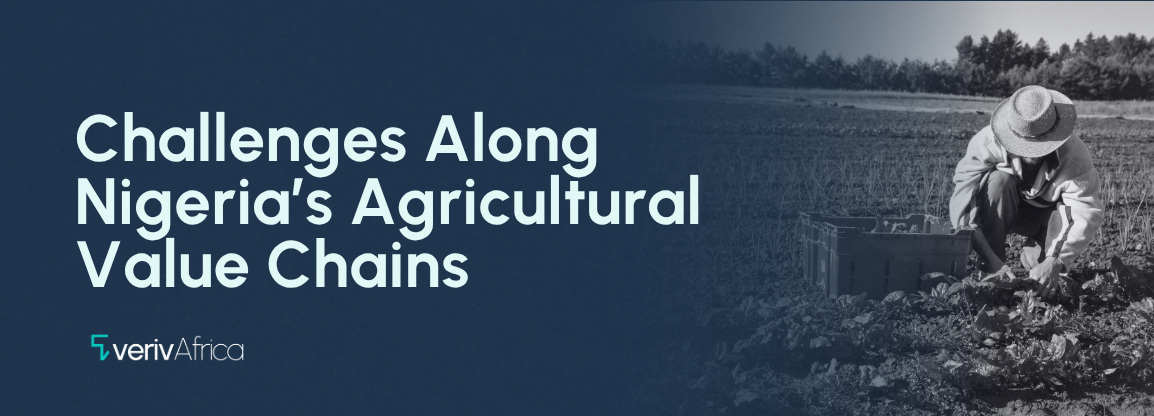Nigeria’s excessive dependence on oil revenues and the call for diversification is no longer news. Oil revenues contribute more than 70% to the nation’s exports, and account for over 75% of export earnings. This outsized role of the sector has consequences for the local currency, fiscal stability, and the general well-being of the national economy. Efforts at diversifying the economy continue to fall short of expectations notwithstanding successive governments promises to mitigate the situation. This note addresses key underlying challenges facing the diversification goal and proposes practical solutions to grow and diversify the Nigerian economy.
The State of Play: An Oil Economy
Nigeria’s trade balance showed a marked increase in 2024 compared to the preceding years. The total value of exports in Q1 and Q2 was reported at ₦19.17 and ₦19.42 trillion, respectively. This contrasts sharply with the 2023 figures, where Nigeria’s exports were valued at ₦12.69 trillion. The transition from Q4’23 to Q1’24 (51% gain) was a major turning point in Nigeria’s trade balance, buoyed by a series of key reforms by the new administration, including bringing an end to the fuel subsidy and embarking on a partial liberalization of the local currency. Furthermore, significant improvements in crude oil production, exports, and other key reforms primarily drove this change.
The rapid rise in exports helped improve Nigeria’s trade balance, with record trade surpluses of 6.52 trillion and 6.9 trillion in Q1 and Q2 of 2024. Imports decreased significantly between Q4’23 and Q1’24 from ₦14.1 trillion to ₦12.6 trillion (a decline of 10.6%) before increasing to ₦12.88 trillion in Q2’24. These are remarkable achievements, especially compared with the economic record of the previous administration.
While the above numbers have shown marked improvement and new major trade partners have emerged, the underlying trade dynamics remain similar. Crude oil exports account for more than 70% of total exports, a proportion that is in line with previous statistics. This proportion continues to impact the economy by exposing the nation’s fiscal and monetary policies to periodic shocks from international oil price fluctuations, global conflicts, and local factors such as oil theft, decaying infrastructure, and reduced investments in new oil fields.
This excessive dependence on oil exports and the outsized role of the oil sector has led to repeated calls for diversification, especially as Nigeria boasts a wealth of resources in mining, agriculture, and possesses the requisite population and human capital for increased production in manufacturing and other sectors. However, the government’s effort at diversifying the economy has fallen short of expectations. The mining sector, which accounts for a significant portion of the export earnings in other African countries, contributed a paltry 0.77% to the GDP in 2023. On the other hand, while agriculture contributes over 20% to the national GDP, its subsistence nature means that receipts from the non-oil sector as a whole was estimated at just over $2.7 billion and below 30% of total export earnings.
Getting Diversification Right: Key Issues to Address
Nigeria’s continued reliance on oil and gas for tax revenues and foreign exchange remains a key issue for the economy's stability and strength. A more diversified, robust, and dynamic economy and fiscal regime must be developed and harnessed to address the country's multifold challenges, including insecurity, multidimensional poverty, and unemployment.
At the core of any diversification strategy is the need to promote a realistic and stable relationship between the government and the private sector. On its part, the government should be focused on creating the ideal environment for businesses and investors to thrive. This includes enacting policies that strike a balance between protecting the public and encouraging entrepreneurial risk. It also includes promoting a transparent, efficient, and customer-centric environment among government bodies and regulatory agencies. By ensuring global standards among investor and business-facing agencies, improving ease of access to government services, and actively investigating and sanctioning cases of corruption and unethical behaviour, local and international investors will feel more confident about taking business risks in the country, especially in critical sectors like mining.
Beyond promoting investor-friendly policies and regulatory regimes, there is a need to fill key information gaps in the nation’s important resource value chains. In the mining sector, there remain significant knowledge gaps on the exact wealth of resources present, their location, reserve estimates, and other geological data that would form the first line of inquiry for interested investors. Considering the potential role of the metals and mining sector in Nigeria, there is a need to fill these knowledge gaps by funding direct research by relevant government agencies, commissioning private firms, or working with private investors willing to fund geological research and estimations in exchange for future returns or free/subsidized mining licences. By rapidly filling these gaps, a critical step in unleashing the mining sector's potential would have been reached.
In agriculture and food production, some progress has been made in providing key inputs such as seeds, fertilisers, and financing through various government programs. However, some of the underlying structural constraints bedevilling the sector remain unsolved. Among these are the confusing and inefficient land tenure system. Nigeria reportedly has over 70 million hectares of agricultural land. However, the majority of these lands lack the requisite title to enable access to credit and other inputs required for a robust agricultural sector. In addition to preventing access to land-backed credit, the tenure system and lack of requisite title prevent long-term investment in the form of plantations and other commercial agriculture activities that could provide robust and diversified export earnings. This continues to hinder the realisation of the sector’s true potential, with consequences for government revenues, job creation, national food security, and forex inflows. A more robust, transparent, and efficient land tenure system should be adopted to enable the sector to realise its full potential. Other challenges impacting the sector, such as farmer-herdsmen conflict, poor inputs, climate change, and lack of access to international markets, must also be addressed.
Finally, the underlying issues affecting the manufacturing sector must be tackled. There needs to be clarity, efficiency, and responsiveness on the part of government and regulatory agencies. Entrepreneurs, investors, and corporations (local and international) should be able to access government services and gain requisite licences in record time as long as they meet the requirements. By creating a pro-business environment, encouraging competitiveness, and providing critical infrastructure and support, the government is likely to unleash the potential of new and existing entrepreneurs as well as ensure easy inflow of critical investments into promising sectors of the economy. In addition to a predictable regulatory regime, one of the challenges facing the sector is the high cost of energy. The passage of the Electricity Act was intended to decentralise energy production, transmission, and distribution as well as attract large, small-scale, and captive producers. While not a panacea, the Act could unleash the potential of the electricity sector if complementary issues highlighted in this section are addressed.
There is no gainsaying the dangers of relying almost completely on the oil sector for revenues and forex earnings. And there is no denying the series of interventions by the federal government in a bid to mitigate this challenge. However, beyond throwing money at sectors and passing laws in silos, there is a need to adopt a more comprehensive approach toward diversifying the economy. Key issues such as land rights, predictable regulatory regimes, and improved information on critical minerals and resources must be addressed. This must be done by all tiers of the government (not just the federal government) working closely with other stakeholders.
References
Nigeria Bureau of Statistics. (2023). Nigeria Gross Domestic Product Q4 2023. https://nigerianstat.gov.ng/elibrary/read/1241460
Nigeria Bureau of Statistics. (2024). Foreign trade in goods statistics Q2 2024. https://nigerianstat.gov.ng/elibrary/read/1241553#:~:text=Summary,the%20corresponding%20period%20of%202023
Nigeria Export Promotion Council. (2024). Nigeria rakes in $2.7 billion from non-oil exports in H1 2024. https://nepc.gov.ng/blog/2024/09/02/diversification-nigeria-rakes-in-2-7bn-from-non-oil-exports-in-the-first-half-of-2024/
Food and Agriculture Organization. (2024). Nigeria at a glance. https://www.fao.org/nigeria/fao-in-nigeria/nigeria-at-a-glance/en/










